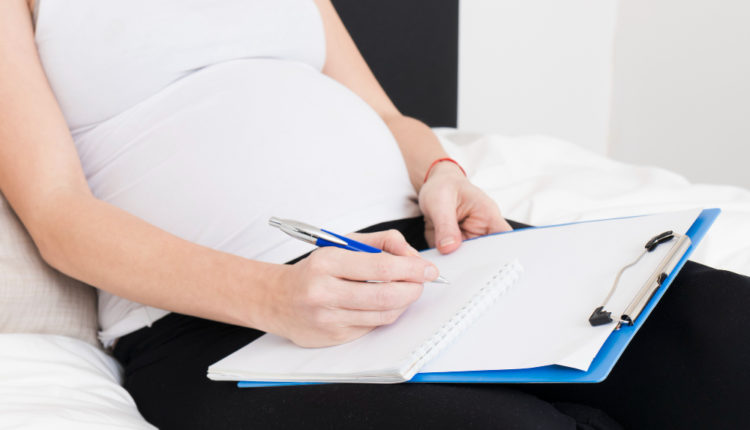Preeclampsia is a condition that affects pregnant women, and it’s essential to recognize its signs and symptoms for the well-being of both the mother and the baby. In this article, we will dive deep into understanding the signs of preeclampsia, from the early warning signals to severe symptoms and how it can be diagnosed and managed. So, let’s begin our journey of awareness and knowledge.
Introduction
Preeclampsia is a serious pregnancy-related condition characterized by high blood pressure and damage to organs such as the liver and kidneys. It typically occurs after the 20th week of pregnancy and can lead to complications if left untreated. Recognizing the signs of preeclampsia is crucial for timely intervention and a safe pregnancy outcome.
Understanding Preeclampsia
Risk Factors
Before delving into the signs, it’s essential to understand who is at risk for preeclampsia. Women with a history of high blood pressure, obesity, multiple pregnancies, or certain medical conditions are more prone to developing preeclampsia.
Impact on Pregnancy
Preeclampsia can have severe consequences for both the mother and the baby. It can lead to preterm birth, low birth weight, and other complications if not managed properly.
Early Warning Signs
High Blood Pressure
One of the primary indicators of preeclampsia is high blood pressure. If your blood pressure consistently rises above 140/90 mm Hg, it’s essential to consult your healthcare provider.
Swelling and Fluid Retention
Swelling, particularly in the hands and face, can be an early sign. If you notice sudden weight gain and puffiness, it’s time to seek medical attention.
Other Physical Symptoms
Headaches
Persistent headaches that don’t respond to over-the-counter pain relievers may be a sign of preeclampsia.
Vision Changes
Blurry vision, light sensitivity, or seeing flashing lights can be warning signs. These vision changes should not be ignored.
Abdominal Pain
Severe pain in the upper abdomen, just below the ribcage, can be a sign of preeclampsia affecting the liver.
Laboratory Findings
Proteinuria
A key diagnostic criteria for preeclampsia is the presence of excess protein in your urine. Regular urine tests at prenatal check-ups can detect this.
Abnormal Liver Function
Blood tests may reveal abnormal liver enzyme levels, which can be a sign of organ damage due to preeclampsia.
Severe Symptoms
Seizures (Eclampsia)
If preeclampsia progresses to its severe form, it can lead to seizures. This condition, known as eclampsia, is life-threatening and requires immediate medical attention.
Organ Damage
Preeclampsia can damage vital organs such as the liver, kidneys, and brain, leading to long-term health issues if not treated promptly.
Diagnosis and Monitoring
Regular Prenatal Check-ups
Regular prenatal visits are essential for monitoring your blood pressure, urine, and overall health during pregnancy. Early detection is key.
Blood Pressure Monitoring
If you’re at risk for preeclampsia, your healthcare provider may recommend regular blood pressure monitoring at home.
Treatment and Management
Medications
In some cases, medications may be prescribed to lower blood pressure and prevent complications.
Hospitalization
Severe cases of preeclampsia may require hospitalization for close monitoring and management.
Complications and Risks
Premature Birth
Preeclampsia often leads to premature birth, which can pose additional challenges for the baby’s health.
Low Birth Weight
Babies born to mothers with preeclampsia are at risk of low birth weight, which can have long-term health implications.
Prevention and Precautions
Managing Risk Factors
Managing preexisting health conditions and maintaining a healthy lifestyle can reduce the risk of preeclampsia.
Early Detection
Recognizing the signs and attending regular prenatal check-ups can help with early detection and intervention.
Support and Education
Patient Resources
Seeking support from patient resources and organizations can provide valuable information and emotional support during your pregnancy journey.
Healthcare Provider Guidance
Consulting with your healthcare provider and following their guidance is crucial for a safe pregnancy.
Impact on Future Pregnancies
Planning for subsequent pregnancies should involve discussions with your healthcare provider regarding the risk of preeclampsia and how to mitigate it.
Conclusion
Recognizing the signs of preeclampsia and taking appropriate action is vital for a healthy pregnancy. Timely diagnosis and management can make a significant difference in the outcome for both the mother and the baby.
Frequently Asked Questions (FAQs)
FAQ 1: Can preeclampsia occur in all pregnancies?
Preeclampsia can affect any pregnancy, but some women are at a higher risk than others.
FAQ 2: Is preeclampsia preventable?
While it may not always be preventable, managing risk factors and early detection can significantly reduce the risk of preeclampsia.
FAQ 3: What is the long-term impact of preeclampsia on mothers?
Preeclampsia can have lasting effects on a mother’s health, including an increased risk of cardiovascular disease.
FAQ 4: Are there any natural remedies to alleviate preeclampsia symptoms?
Natural remedies should be used cautiously and only under the guidance of a healthcare provider. They are not a substitute for medical treatment.
FAQ 5: Can preeclampsia be diagnosed early in pregnancy?
Preeclampsia is typically diagnosed after the 20th week of pregnancy, but early signs can sometimes be detected earlier with careful monitoring.

